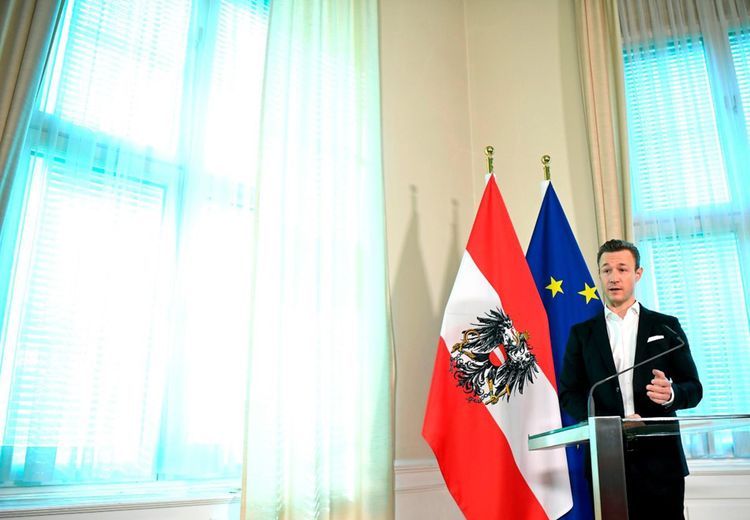You can read the German version here: Österreichs Bevölkerung unter Generalverdacht
Dear Readers,
The media minister has presented a law aimed at fostering "considerate behavior" on the internet by preventing hate posts on online forums. And that sounds like a worthwhile goal. But once you read the text of the draft law, it becomes clear that Minister Blümel is not really all that concerned about hate posts.
The draft represents a violation of European law, it is a violation of the Austrian constitution and it stands in contradiction to the position taken by the European Court of Human Rights, the European Council and the European Court of Justice. It conflicts with data protection laws and represents a potentially existential threat to operators of online forums. It does so because it is unreasonable to require forum operators to perform the enormous administrative task of checking, saving and continually updating the data of all their users. Because anonymous posts are protected by the freedom of expression. Because it requires all data to be documented without cause, a clear violation of data retention laws. Because it would make it easier to access the data of those posting on such forums. Because the law includes potential penalties of up to a million euros. Because it would place Austrians at a disadvantage relative to those living abroad. And because it seriously stipulates that platforms like Facebook, Twitter, Google and Facebook establish an infrastructure specifically for Austrian users so as to be able to identify them – though the American companies would almost certainly be successful in claiming that the law doesn't apply to them.
Consistent Moderation Would Suffice
The draft law shows that Media Minister Blümel lacks a basic understanding of how the internet works. It would have been sufficient to simply copy Germany's Network Enforcement Act, which foresees consistent forum moderation as the only effective measure against hate posts. And the government could have appointed the state prosecutors it has long been promising to go after hate posters and effectively enforce existing regulations. But that isn't the minister's true aim. Hate posts are merely a means to a spurious end.
With the law, the government has placed the people of Austria under general suspicion. It is akin to requiring all people who want to use a train station to register in advance just in case one of them ends up damaging something. The law sends a clear signal: Think twice before you post something critical or personal! Think again before publicizing problems in your profession or area of expertise. Because everything you say can be used against you. It is possible for the government to learn who you are. You can be found – potentially even by your employer.
Online forums are an essential element of digital media. They are places where "message control" doesn't work, where politicians must accept public criticism of their actions. STANDARD also hosts such a forum. The tone there may not always be civil, but hate posts aren't a problem because 16 moderators keep an eye on the debate. There are only about 20 requests for information each year, which is an extremely low number. By contrast, we frequently receive valuable tips in the forums to guide our reporting.
Because the law targets forums, it represents a direct attack on an important foundation of Austrian media. The law is consistent with the global trend among right-wing and populist politicians, who are doing all they can to foment distrust of independent journalism and public debate – led by U.S. President Donald Trump, who labels critical media outlets as "enemies of the people." Instead of using the media-minister platform to figure out how to support quality journalism in an age when half of all online advertising expenditures go to Facebook and Google, the government is doing the opposite. The government's PR department has expanded, and tax money is being channeled into the yellow press in the form of government advertisements. Public expenditures for ads on Facebook are in the millions. The FPÖ is developing its own media empire, with a huge Facebook presence, FPÖ TV and pro-party media outlets like Unzensuriert, to which the new law doesn't even apply.
Where does our government stand in the global fight for independent journalism? To answer that question, it could respond to a simple query: What can be done to strengthen democracy? Because everything that helps democracy, automatically helps independent quality journalism. Perhaps addressing such a question would help Minister Blümel to come to a realization: Does it really help democracy when one is only allowed to express an opinion after one's identity has been established?
This is not about whether or not you value critical reporting or whether you've been insulted in an online forum before. This is about something much larger: Are we going to allow our political representatives to force self-censorship onto web discourse? Do we want an important pillar of free online journalism to be removed through the back door?
Independent journalism can neither be misappropriated nor kicked to the curb. Even if the media minister uses his law to attack the freedom of the press, we as journalists cannot become activists. That would lead to the loss of our independence. That won't happen at STANDARD: We will do all we can to continue protecting the data of our users. And we will continue writing the truth independently. We can do so thanks to the support of readers like you. For that, we would like to express our deepest gratitude. Thank you!
Sincerely,
Martin Kotynek,
Editor-in-Chief, DER STANDARD

